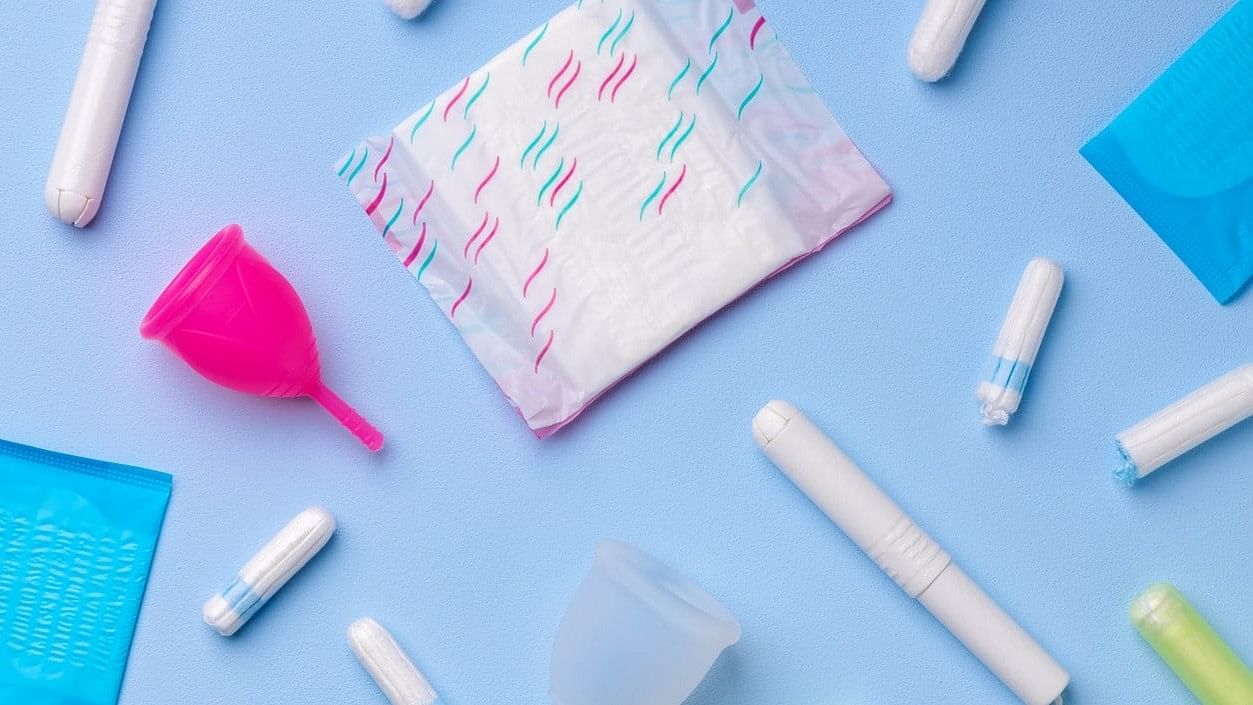
A representative image of menstrual hygiene products.
Credit: iStock Photo
In a bid to fight emissions produced due to menstrual products, scientists from Virgina Tech have developed a biomaterial with a powder formula that is able to convert blood into gel.
According to WUKA, maker of period underwear, one year's worth of pads and tampons produce 19.62 pounds of Co2 emissions. This is akin to charging a mobile more than 1000 times. This new invention is able to lessen the emissions while simultaneously provide one with high-quality menstrual products.
This material also minimises leakage and reduces the chances of developing infections.
According to Bryan Hsu, assistant professor of biological sciences from Virginia Tech, the biomaterial uses alginate, which can be sourced naturally.
“Traditional uses for alginate have been in foods and biotechnology (such as drug delivery),” Interesting Engineering reported Hsu as saying.
“It is also used in wound dressings to accelerate hemostasis by concentrating clotting factors. Menstrual blood lacks the ability to coagulate on its own, so our approach is gel blood that can coagulate on its own," Hsu told the publication.
When one adds this biomaterial to the menstrual products, it turns period blood into gel thereby improving absorption and reducing leakage.
Alginate and glycerol components are used in food and biomedical applications and thus are expected to be safe. However, Hsu said these gels are not necessarily allergen-friendly. Though they use purified materials which will reduce the chances of a reaction, it primarily depends on the individual who is using the product.
“We also use chitosan as an antimicrobial component and some people may be allergic to it because its parental compound, chitin, is a material in shellfish,” Hsu told Interesting Engineering.
As per the statement, when the powder formula is added to a cotton coil and inserted into a menstrual cup or disc, the blood collected then turns into gel, eliminating the mess when removing or changing the cup or disc.
In order to incorporate the material into a pad, the scientists said they will use the 'material' as a replacement for the absorbent material which is present in the pad. Moreover, the biomaterial can be used to improve the performance of menstrual cups.
The biomaterial has been approved by the Food and Drug Administration and is safe to use in addition to being biodegradable.